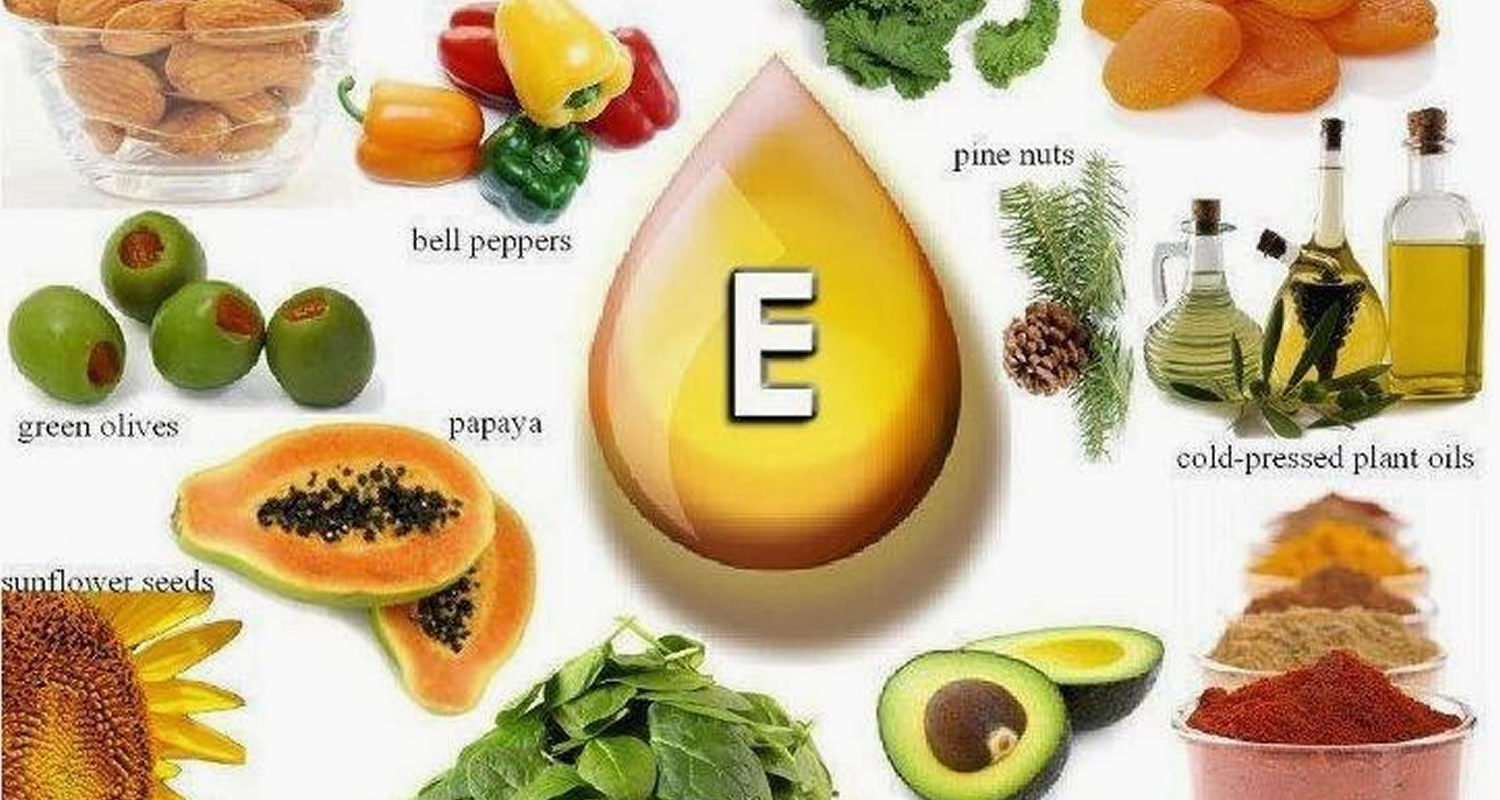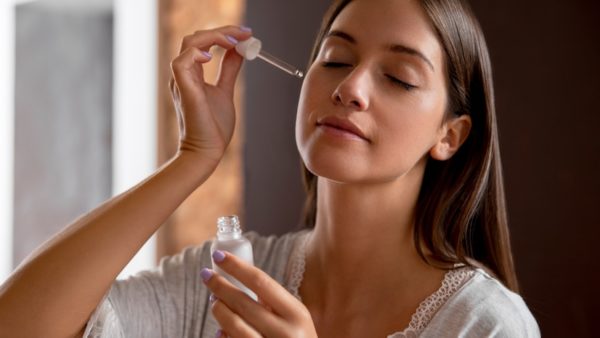Vitamin E is a fat-soluble nutrient that plays a crucial role in maintaining overall health and well-being. This vitamin acts as an antioxidant, protecting cells from damage caused by harmful molecules known as free radicals. Vitamin E is also essential for the proper functioning of the immune system, the formation of red blood cells, and the maintenance of healthy skin and eyes.
While vitamin E can be obtained through supplements, it’s always best to get your nutrients from whole foods. This article will provide an overview of the health benefits of vitamin E and explore some of its top nutritional sources. Whether you’re looking to boost your immune system or improve your skin health, incorporating more vitamin E-rich foods into your diet may help you achieve your goals.
Vitamin E: An Overview
Vitamin E is a fat-soluble vitamin that plays an important role in the overall health of our body. It acts as an antioxidant, protecting cells against damage caused by free radicals. Vitamin E also helps to boost the immune system and has anti-inflammatory properties that may benefit people with conditions such as arthritis.
There are eight different forms of vitamin E, but alpha-tocopherol is the most commonly found in food and supplements. Some studies suggest that consuming enough vitamin E can help reduce the risk of heart disease and stroke, although more research is needed to confirm this link.
Good dietary sources of vitamin E include nuts and seeds (especially almonds and sunflower seeds), vegetable oils (such as wheat germ oil), spinach, broccoli, and avocados. However, it can be difficult to get enough vitamin E through diet alone, so many people choose to take supplements instead.
Health Benefits:
Vitamin E is a crucial nutrient that plays a significant role in maintaining overall health and well-being. It is a powerful antioxidant that helps to protect cells against damage caused by free radicals, which can cause oxidative stress and lead to chronic diseases such as cancer, heart disease, and Alzheimer’s. In addition to its antioxidant properties, vitamin E is also essential for maintaining healthy skin, hair, and nails.
One of the primary health benefits of vitamin E is its ability to support immune function. Vitamin E helps to boost the production of white blood cells, which are responsible for fighting off infections and illnesses. It also helps to enhance the body’s natural defenses by stimulating the activity of natural killer cells and other immune system components.
Another important benefit of vitamin E is its potential role in preventing or slowing down age-related cognitive decline. Studies have shown that vitamin E may help to protect brain cells from damage caused by free radicals and improve cognitive function in older adults. While more research is needed in this area, these findings suggest that maintaining adequate levels of vitamin E may be an important part of promoting healthy aging and preventing neurodegenerative diseases like Alzheimer’s.
Also Read: wellhealthorganic.com:winter-skin-care-tips-home-remedies-to-keep-your-skin-moisturised
Antioxidant Properties, Skin Health, Eye Health, Immune System Support
Antioxidants are compounds that protect our cells from damage caused by free radicals. Vitamin E, a fat-soluble vitamin, is considered one of the most potent antioxidants and has been linked to numerous health benefits. Its anti-inflammatory properties make it particularly beneficial for skin health as it helps reduce redness, wrinkles, and fine lines. Studies have shown that topical application of vitamin E can also improve the appearance of scars and stretch marks.
Moreover, vitamin E plays an important role in maintaining eye health by protecting the retina from oxidative stress and preventing cataracts. It has also been shown to support immune system function by stimulating the production of immune cells that help fight off infections and diseases. However, it’s important to note that excessive intake of vitamin E supplements may lead to adverse effects such as nausea and diarrhea. The best way to obtain sufficient amounts of this nutrient is through a balanced diet rich in sources like nuts, seeds, vegetable oils, and green leafy vegetables.
Nutritional Sources:
Vitamin E is a crucial nutrient that plays an essential role in maintaining good health. Its primary function is to protect the cells and tissues of the body from damage caused by free radicals, which are unstable molecules that can lead to chronic diseases such as cancer, heart disease, and Alzheimer’s. The best way to ensure adequate vitamin E intake is through a balanced diet rich in nuts, seeds, leafy vegetables, and vegetable oils.
Some of the most abundant sources of vitamin E include almonds, sunflower seeds, spinach, avocadoes, broccoli raab, pumpkin seeds, and hazelnuts. Sunflower oil is also an excellent source of vitamin E; just one tablespoon packs 28% of the daily recommended value! Besides these foods’ nutritional benefits for Vitamin E, they provide other micronutrients like fiber or healthy fats.
It’s important to note that while supplementation may seem like an easy solution for getting enough vitamin E into your diet quickly; high doses can be harmful. Instead of relying on supplements alone try incorporating more whole foods into your meals as part of a long-term solution towards better nutrition habits.
Nuts and Seeds, Leafy Greens, Fruits, and Vegetables
Nuts and seeds, leafy greens, fruits, and vegetables are all great sources of vitamin E. This essential nutrient is a powerful antioxidant that helps protect cells from damage caused by free radicals. It also plays an important role in immune function and skin health.
Some of the best sources of vitamin E include sunflower seeds, almonds, spinach, avocados, sweet potatoes, and mangoes. Adding these foods to your diet can help you meet your daily recommended intake of this crucial nutrient. Vitamin E supplements are also available for those who may not be getting enough through their diet alone.
In addition to its antioxidant properties, vitamin E has been linked to numerous health benefits such as reducing the risk of heart disease and improving brain function. Incorporating more nuts and seeds, leafy greens, fruits, and vegetables into your diet can not only boost your intake of vitamin E but also provide a wide range of other essential nutrients for optimal health.
Also Read: wellhealthorganic.com:diet-for-excellent-skin-care-oil-is-an-essential-ingredient
Daily Recommended Intake:
Vitamin E is a fat-soluble vitamin that has antioxidant properties and plays a vital role in maintaining the health of our cells, skin, and immune system. The recommended daily intake of vitamin E varies according to age and sex. For adults aged 19 years and above, the daily recommended intake is 15 milligrams (mg). However, pregnant women require more vitamin E, which is around 15-19 mg/day.
Several sources of vitamin E can be easily incorporated into your diet. Foods that are rich in this nutrient include nuts like almonds, hazelnuts, and peanuts. You can also find it in seeds such as sunflower seeds and pumpkin seeds. Additionally, plant-based oils such as sunflower oil or wheat germ oil contain high amounts of Vitamin E.
If you’re concerned about getting enough Vitamin E through your diet alone or have medical conditions that make it difficult for your body to absorb nutrients from food adequately, supplements may be necessary after consulting with your healthcare provider. It’s essential not to go overboard on supplements since consuming too much could lead to adverse effects on health rather than benefits.
Age-Based Guidelines for Men and Women
For adults, the recommended daily dose of vitamin E is 15 mg per day. However, this amount may vary based on age and gender. In general, men and women over the age of 50 require more vitamin E than younger adults.
For men over the age of 50, the recommended daily dose increases to 20 mg per day. This is due to an increased risk of developing prostate cancer in older men. Vitamin E has been shown to have protective effects against prostate cancer.
Women over the age of 50 also require more vitamin E than younger women, with a recommended daily dose of 18 mg per day. This is because older women are at a higher risk for heart disease and stroke, both conditions that can benefit from vitamin E’s antioxidant properties.
Overall, it’s important to consult with a healthcare professional before beginning any new supplement regimen or drastically changing your diet. While vitamin E can be beneficial for many people, it’s important to ensure that you’re taking the appropriate dosage based on your individual needs.
Potential Risks:
While vitamin E is essential for good health, there are potential risks associated with consuming too much of it. Excessive intake of vitamin E supplements can result in bleeding disorders, especially when taken with blood-thinning medications such as warfarin. High doses may also interact negatively with other drugs like chemotherapy treatments and cause harmful side effects.
Another risk of too much vitamin E consumption is its impact on the body’s immune system. Some studies suggest that excessive amounts of vitamin E can suppress the immune system’s natural response to infections and illnesses, leading to an increased risk of contracting diseases.
Additionally, individuals who consume high amounts of vitamin E from supplements may experience digestive issues such as diarrhea, nausea, and intestinal cramps. It’s important to maintain a healthy balance and avoid taking more than the recommended daily dose unless advised by a healthcare professional.
Excessive Supplement Use, Interactions with Blood-Thinning Medications
Excessive supplement use has become a common practice among people who seek to improve their health. However, taking high doses of certain supplements can lead to adverse effects and even interact with prescription medication. Blood-thinning medications, such as warfarin and aspirin, are commonly prescribed to prevent blood clotting in individuals with heart disease or stroke history. Vitamin E is a popular supplement that is known for its antioxidant properties and ability to reduce inflammation.
While vitamin E is generally safe when taken in recommended doses, excessive use can cause bleeding disorders in individuals taking blood-thinning medications. Studies have shown that high doses of vitamin E can significantly increase the risk of bleeding events in patients on warfarin therapy. Patients on blood thinners need to consult their healthcare provider before taking any supplements or making changes to their diet.
In conclusion, while supplements such as vitamin E may offer numerous health benefits, it is crucial to take them under medical supervision and within recommended limits. Patients should inform their healthcare providers about any supplement use before starting a new medication regimen or undergoing surgery to avoid potential interactions that could result from excessive supplement intake.
Importance of Vitamin E for Overall Health
Vitamin E is one of the most essential nutrients required by the body for overall health. It acts as a powerful antioxidant that helps to protect cells from damage caused by free radicals and oxidative stress. This vitamin helps in maintaining healthy skin, eyes, and immune system. Studies have shown that vitamin E plays a role in reducing inflammation, which can help lower the risk of chronic diseases such as heart disease and cancer.
One of the primary benefits of Vitamin E is its ability to promote skin health. It is known to protect against harmful UV rays from sun exposure, reduce wrinkles and fine lines, improve texture and tone, prevent scarring after injury or surgery, and enhance wound healing. Additionally, it aids in reducing the effects of aging on the skin by protecting against free radical damage.
Moreover, vitamin E supports cardiovascular health by improving blood circulation and preventing blood clot formation. The nutrient also plays an important role in preventing cognitive decline associated with aging by protecting brain cells from oxidative stress damage. In conclusion, consuming foods rich in Vitamin E or taking supplements can help support overall health while providing various benefits for skin, heart health, and cognitive function.
Also Read: wellhealthorganic.com:easy-way-to-gain-weight-know-how-raisins-can-help-in-weight-gain
Conclusion:
In conclusion, Vitamin E is an essential nutrient that provides numerous health benefits to the human body. It acts as a powerful antioxidant, protecting cells from oxidative damage caused by free radicals. Additionally, it plays a role in maintaining healthy skin and hair and supports immune function.
To receive the maximum benefits of vitamin E, it is important to incorporate a variety of vitamin E-rich foods into your diet regularly. Some excellent sources include nuts such as almonds and peanuts, seeds like sunflower seeds and pumpkin seeds, and oils like olive oil and sunflower oil.
Overall, ensuring adequate intake of vitamin E can lead to improved health outcomes. However, it is also important not to overconsume this nutrient through supplements or high-dose multivitamins as excessive intake can have adverse effects on overall health.









